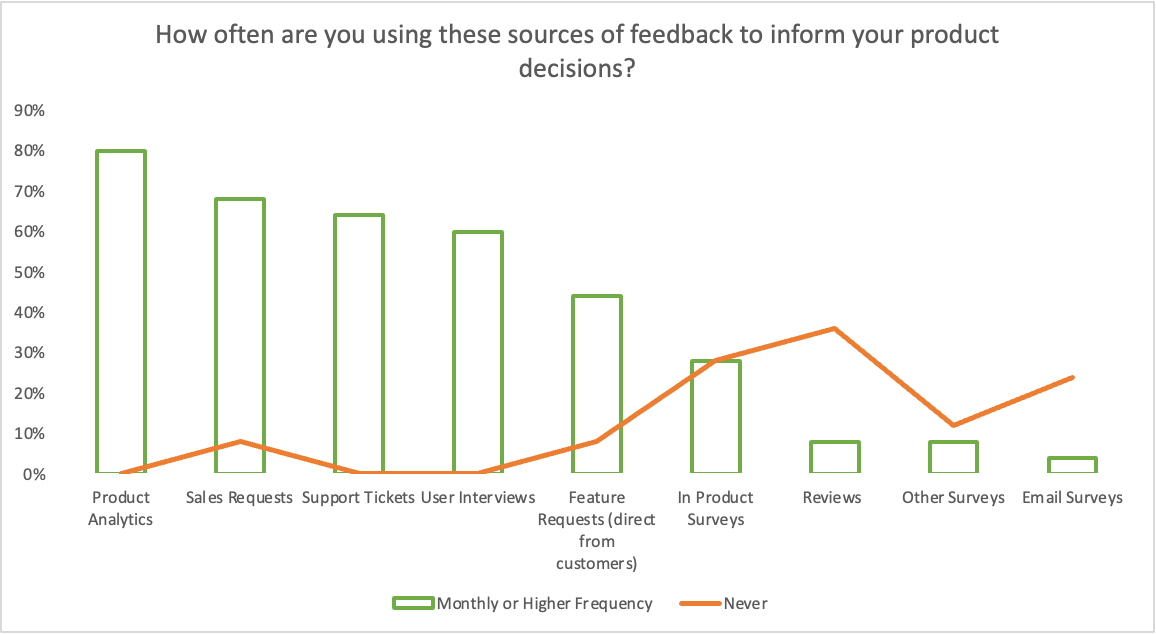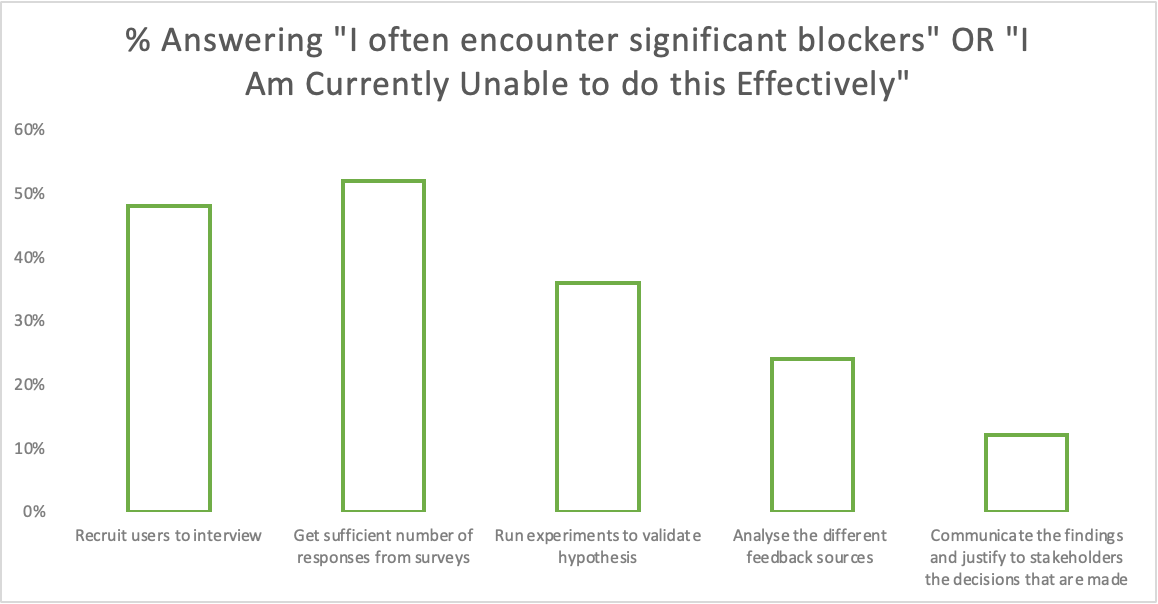Essential KPIs for optimal SaaS business
Key Performance Indicators (KPIs) are important to business...

We have conducted a survey on product discovery habits in product organizations, receiving dozens of replies. It is now time to share our findings with everyone. Responses have been received from organizations of all sizes, ranging from product development teams with less than 10 people to teams with over 200 people. The majority of respondents (40%) are from B2B companies, with B2C companies following closely behind at 36%. The remaining respondents are split between different types of marketplaces (B2B2C, B2B2C, etc.). The vast majority of respondents are from Singapore, with a few from Europe.
So, here’s what you all had to say…
Our first question was about the sources of feedback people use and how frequently they rely on them to inform their product decisions. What stands out the most to me is how infrequently people are leveraging surveys. Less than 8% use email and other surveys on a monthly or higher frequency, and only 28% use in-product surveys. In fact, when it comes to in-product surveys, a similar percentage (28%) never uses them, and 24% never use email as a way to collect feedback.
User interviews are mentioned by 74% as the most powerful source of insight when it comes to making product decisions. However, it is not among the top 3 most frequently used sources.
Product Analytics is used on a daily basis by 44% of respondents. The next most frequent source of feedback is from sales teams, with 36% of teams reviewing sales requests on a weekly basis. Support tickets come in 3rd place, with 32% of product teams reviewing them weekly.
However, less than 60% of teams are conducting user interviews on a monthly or higher frequency, despite over 74% of respondents mentioning regular contact with users as the most effective source of feedback. Interestingly, only 9% of people mentioned product analytics as the most effective source.

We asked respondents about the difficulty of accomplishing critical tasks throughout the discovery lifecycle. User recruitment for surveys and interviews was identified as the biggest challenge, with 52% and 48% of respondents, respectively, unable to do so effectively or encountering significant blockers. This is not surprising, as time is the most valuable resource people have, and getting them to donate it can be tough. (Once again, a huge thanks to those who have been willing to talk to me and participate in this survey!) Surprisingly, 32% of people are currently encountering significant blockers in running experiments.
32% of respondents are currently unable to run experiments to validate hypothesis!
When asked about the biggest blocker in running an effective product discovery cycle, 44% of respondents mentioned internal culture factors. These factors ranged from lack of management support to frequent changes in strategy to fear of showing work in progress to customers.
33% of respondents mentioned lack of time as the biggest blocker. They either found activities related to discovery too time-consuming or were pressured internally to focus on delivery. Some respondents also mentioned lack of expertise and difficulty in organizing data in ways that are meaningful for them and their stakeholders.
Interestingly, only 27% of respondents mentioned recruitment of users as the biggest blocker. This suggests that a significant part of the issue in getting users to participate in surveys and interviews is the lack of support by field teams. In some companies, the field teams act as gatekeepers of the customer.
Product leaders would do well in working with their counterparts and the rest of the leadership team to build trust and internal support for product teams to talk to customers directly.
After reviewing everyone’s responses to this survey, it is clear that product teams want to spend more time with users and customers, focusing on understanding their needs rather than just delivery excellence. Whilst there is a strong recognition within the product development community of the importance and value of user centricity, product teams are not convincingly communicating internally the benefits that can be gained from it and are not effectively influencing stakeholders on the importance of discovery as a critical aspect of the development lifecycle.
Written by